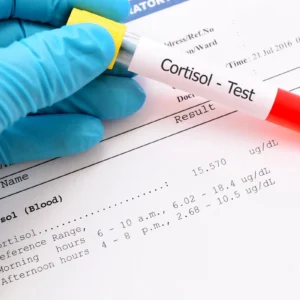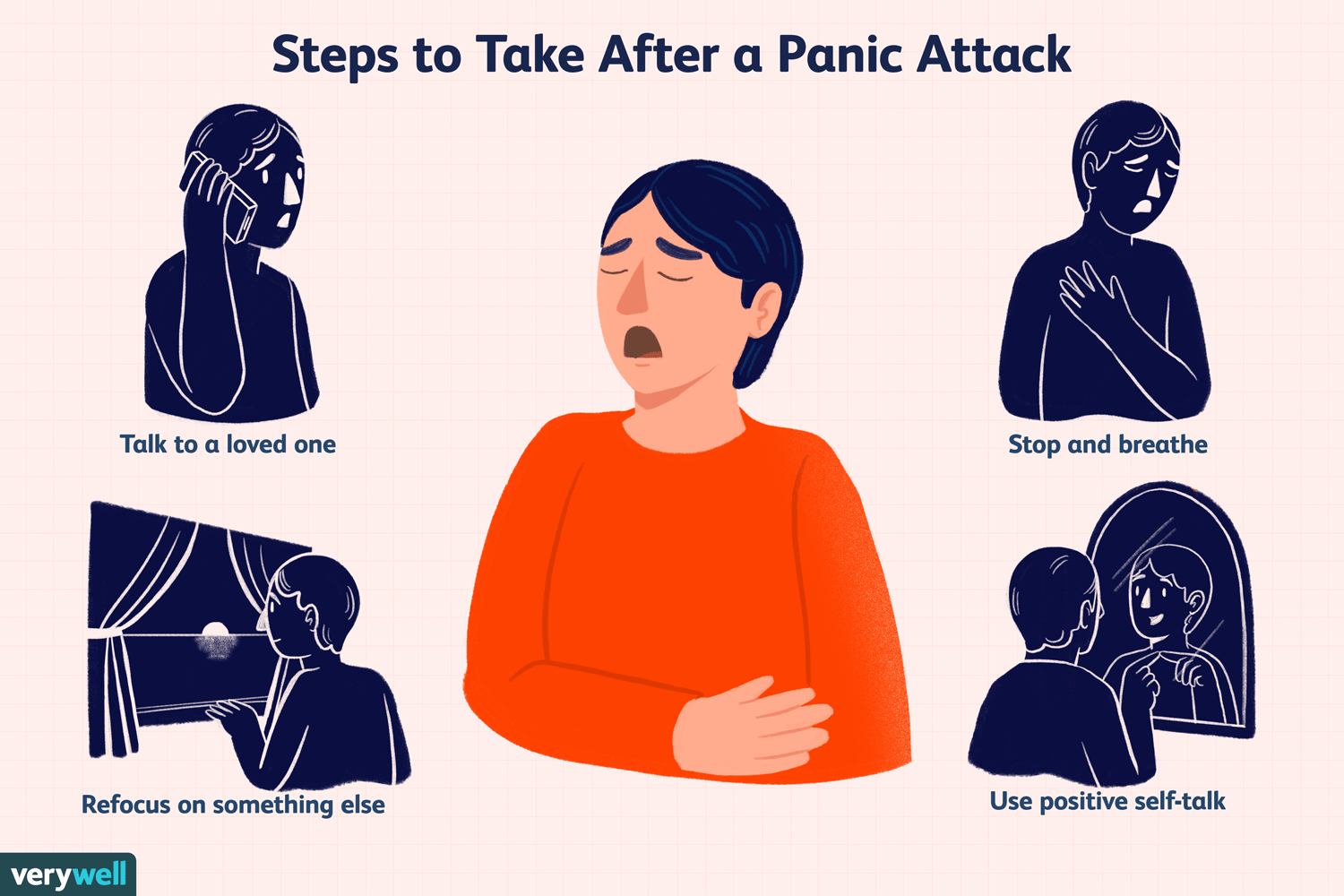Explore how the distress of anxiety might induce an unexpected symptom – a chronic cough. Can anxiety cause coughing attacks? Join us as we uncover this intriguing medical anomaly.
You might wonder, being aware of the wide range of physical symptoms it can trigger, from headaches to stomach upsets. Interestingly, coughing can also be a manifestation of anxiety.
Do you find yourself constantly wrestling with anxiety and battling a stubborn cough alongside? You might be wondering if the threads of your anxiety are interwoven with your frequent coughing attacks.
There’s a growing body of evidence to suggest that anxiety can indeed fuel coughing attacks, albeit the research in this specific area is in its fledgling stages.
Coughing attacks triggered by anxiety is a phenomenon medically termed as somatic cough syndrome, earlier known as a psychogenic cough.
How does anxiety result in coughing attacks?
Though commonly perceived as a psychological symptom, anxiety can also project itself physically. Classic examples include being flustered to the extent of blushing, experiencing a fluttery sensation in the stomach or feeling as if there is a lump in your throat.
Falling under the banner of somatic coughs, anxiety-induced coughing attacks stand out due to lack of a physical cause but heralding from psychological distress— a process clinically defined as somatization.
can anxiety cause coughing attacks? – Best Theories
Unpacking how anxiety morphs into coughing attacks, researchers have also pieced together several theories:
- Anxiety can transform your breathing patterns, causing you to breathe rapidly and shallowly, a state defined as hyperventilation. This can result in throat irritation or dryness, triggering coughing attacks.
- According to a comprehensive 2018 study, anxiety and stress can exacerbate acid reflux or gastroesophageal reflux disease (GERD). Acid reaching the esophagus through this process can spark coughing attacks.
- Anxiety and high-stress levels can compromise your immune system’s robustness, making you more vulnerable to irritants and infections that cause coughing.
- Under the significant strain of constant stress, the prime nerve running from the brain stem to various organs, including the lungs—the vagus nerve—can see adverse effects. Some experts propose this as an explanation for mysterious coughing attacks.
Anxiety-Induced Coughing: Recurring Symptoms and Nervous Cough Manifestations:
Your experience may include:
- A recurring sensation of tickling in your throat or lungs resulting in coughing.
- A persistent, dry cough, creating a non-productive coughing environment.
- An increase in coughing during periods of heightened stress or anxiety and a decrease when relaxed or less stressed.
- A struggle to take a deep breath without inducing a cough.
These symptoms, asking “can anxiety cause coughing attacks?”, may sporadically appear and disappear, show up frequently, or consistently persist over an undefined period.
These anxiety-induced coughing attacks could act as precursors, companions, or sequels to an escalation of other anxious sensations or symptoms, or perhaps strike independently.
These coughing symptoms might emerge prior to, during, or post an episode of heightened nervousness, anxiety, fear, or stress, or perhaps surface unexpectedly without any apparent trigger.
The intensity of these anxiety-triggered coughing attacks can range from mild to moderate or even severe.
The coughing might also wax and wane, being persistent one moment and subsiding the next.
The manifestation of these anxiety-related coughing bouts can vary with each passing day or even from one moment to the next. It’s quite common to witness these varieties of symptoms and their combinations.
For many individuals, rest, nighttime, or periods of sleep may lead to the subsiding or diminishing of the anxiety-induced coughing attacks.
Conversely, certain individuals may experience an increase in anxiety-related coughing late in the day, at night, or while resting, relaxing, or sleeping .Given that anxiety impacts each individual uniquely, every person may undergo unique experiences regarding anxiety-induced coughing attacks.
Why Does Persistent Coughing Stem from Anxiety? A Medical Perspective
The question, “Can anxiety cause coughing attacks?”, can be met with a resounding “yes”. There are several factors involving anxiety that can lead to a persistent cough:
1. Immune System Suppression
Anxiety triggers the body’s stress response, akin to an “emergency boost” when the body perceives danger, granting an enhanced capacity to either battle against or evade the threat. To direct maximum energy and awareness towards essential organs and systems, the body suppresses non-essential functions during these stress responses.
This mechanism works positively if stress responses are infrequent, but can fail when stress responses occur too often .Consider this, the immune system, a non-essential function during stress responses, combats foreign bodies like viruses and infections. Given the immune system gets suppressed under anxious or stressful situations, long-term instances undermine the body’s defense against these foreign threats, providing them ideal conditions to implant and potentially thrive.
Consistent high levels of anxiety and stress can keep the immune system suppressed, making it even difficult for antibiotics to help the body fight off infections .Since viruses and infections often lead to coughing, prolonged high-stress and anxiety levels can prolong the duration of a cough. This is due to the body’s reduced capacity to combat these viruses and infections, underscoring the significance of a healthy immune system.
2. Overstimulation of the Vagus Nerve
The Vagus or Cranial Nerve X, extending from the brain stem to several internal organs within the chest (like the heart and lungs) or abdomen (like the liver, pancreas, or intestines), can also be influenced by stress-response hyperstimulation. This nerve also carries sensory data from the ear, tongue, pharynx, and larynx back to the brain. As part of the nervous system, the Vagus nerve can be negatively impacted by stress-triggered hyperstimulation, considering stress responses primarily target the nervous system.
3. Rapid and Shallow Breathing
Under conditions of stress or anxiety, many individuals tend to breathe rapidly and shallowly. While usually harmless in the short term, prolonged periods of such breathing patterns can lead to a sore and dry throat . Prolonged coughing can further irritate the throat, leading to a never-ending cycle of a dry. However, these aren’t the only causes, and we’ve elaborated on two additional common causes within the Recovery Support section of our website. The above, though, remain the most notable.
What Kind of Cough Does Anxiety Induce?
For a long period, health professionals presumed honking cough was a pivotal characteristic of a somatic coughing syndrome.
However, most recent guidelines advise against this particular symptom’s usage for diagnosis, considering the possibility of its occurrence due to other causes, like a general cold .Moreover, while coughing typically subsides at night in the case of a somatic cough disorder, this trait isn’t exclusive to it and is observed in various other cough disorders. Consequently, this aspect isn’t utilized in diagnosing the disorder anymore. Being highly individual-specific, coughing patterns differ vastly.
Can anxiety cause coughing attacks?
There’s no defined type of cough directly linked with the query, “can anxiety cause coughing attacks?”. Generally, though, it is likely to manifest as a dry, nonproductive cough .Anxiety-induced coughing attacks may exhibit the following symptoms, although not necessarily at all times:
- Coughing in response to feelings of anxiety or nervousness
- Reduced coughing episodes when in a relaxed state.
- A persistently dry cough.
- Difficulties in taking a deep breath without succumbing to a cough.
- A tickling sensation in the throat or lungs provoking you to cough.
A constant, nonproductive cough. - Possible presence of a barking or honking sound.
- Complete absence of coughing during sleep.
The coughing symptoms could occasionally occur or remain persistent. Many of these symptoms are shared with other conditions. Hence, consulting a healthcare professional for an accurate diagnosis remains essential.
Related post: What happens during an anxiety attack












